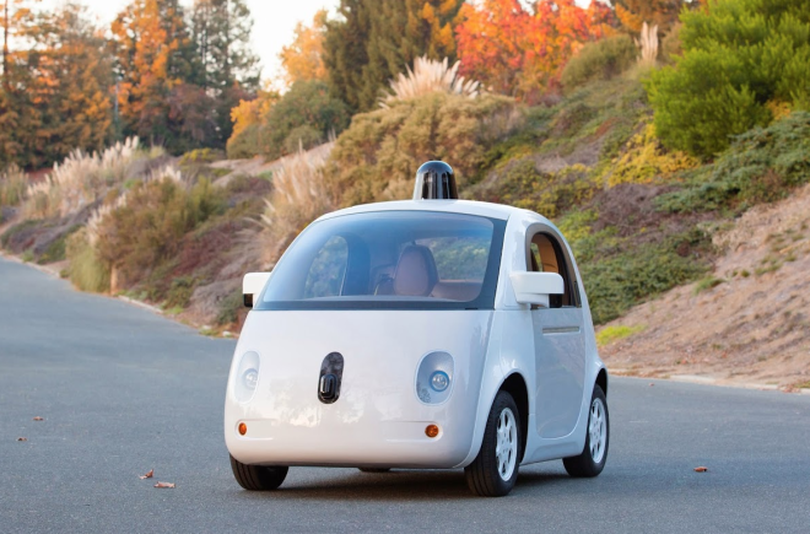Are we ready for self-driving cars?

Let's start out by saying that self-driving cars are terrifying. I can't imagine anything that would palpitate my heart more than letting go of the wheel while my car barrels down South Lincoln Street toward the gauntlet of downtown Spokane.
But think about this: In 2013, almost 33,000 Americans died in car wrecks. It's the leading cause of death for 18- to 24-year-olds. On the other hand, Google's self-driving prototype vehicles logged 700,000 autonomous miles in April of this year without one incident. (Two accidents involved the cars, but Google attributed them to human error.)
Whether the autonomous vehicles are safer or not is on everyone's minds as Google begins testing a new prototype on the streets of Northern California in 2015. It's safe to say the prototype is adorable. Wired described it as an "egg with the face of a koala." Seattle's inimitable Matthew Inman, of The Oatmeal, called the vehicles our "Marshmallow Overlords."
Inman has a way with words, illustrations and ideas. He tested out the vehicle and wrote up six things he learned about self-driving cars. As usual, he's hilarious but kind of serious. After saying that we humans are "terrible drivers," Google's cars are "timid" and the technology isn't quite perfected yet, he made a call for the cars to be perfected and rolled out "like yesterday." Then he got personal:
"I'm biased. Earlier this year my mom had a stroke. It damaged the visual cortex of her brain, and her vision was impaired to the point that she'll probably never drive again. This reduced her from a fully-functional, independent human being with a career and a buzzing social life into someone who is homebound, disabled, and powerless.
When discussing self-driving cars, people tend to ask a lot of superficial questions: how much will these cars cost? Is this supposed to replace my car at home? Is this supposed to replace taxis or Uber? What if I need to use a drive-thru?
They ignore the smarter questions. They ignore the fact that 45% of disabled people in the US still work. (Source: page 20) They ignore the fact that 95% of a car's lifetime is spent parked.(Source) They ignore how this technology could transform the lives of the elderly, or eradicate the need for parking lots or garages or gas stations. They dismiss the entire concept because they don't think a computer could ever be as good at merging on the freeway as they are.
They ignore the great, big, beautiful picture staring them right in the face: that this technology could make our lives so much better."
It reminds me of when I was in my early twenties and a friend and I came across a car that had just rammed into a street light. The car was dinged up but thankfully no one was hurt. However, the fault appeared to be that of an elderly woman behind the wheel. I made some off-hand comment about how older people shouldn't be allowed to have drivers licenses at a certain point. My friend was offended, and rightly pointed out to me that many old folks have no other way to get out of the house and to the grocery store, pharmacy or elsewhere. They need cars, or a robust mass transit system or a supportive network of friends and family who will help transport them. Inman has me thinking: Could Google's cars also help?
Still, are we ready for autonomous cars? Are you?
Inman sure is.
"I’m ready for our army of Skynet Marshmallow Bumper Bots," he wrote. "I'm ready for the future. I'm ready for the marshmallows."
(H/T to the SRTC Transportation blog for inspiring this post.)
